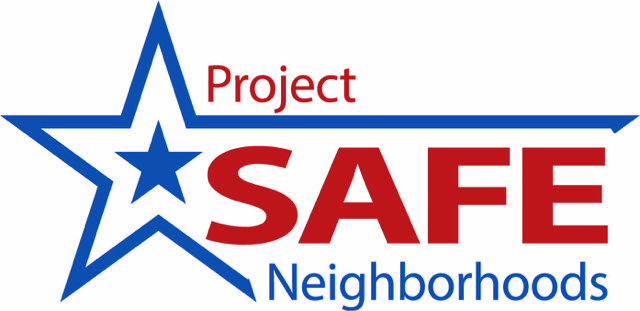What is Project Safe Neighborhoods?
Project Safe Neighborhoods (PSN) is a nationwide commitment to reduce gun and gang crime in the United States at the local level. The core of PSN involves the funding of local programs coupled with increased federal prosecution of illegal gun use and possession. Since its inception in 2001, over $2 billion has been committed to this initiative. This funding is being used to hire new federal and state prosecutors, support investigators, provide training, deter juvenile gun crime, and develop and promote community outreach efforts, as well as to support other gun crime and gang violence reduction strategies.Each year, the 94 U.S. Attorney districts are eligible to apply for PSN grants to develop and sustain five elements that build on the original program components:
- Leadership
- Partnership
- Targeted Enforcement
- Prevention
- Accountability
PSN proposed to increase partnerships between federal, state, and local law enforcement agencies through the formation of a local gun crime reduction task force. Additionally, PSN encouraged establishing partnerships with other sectors of local government, social services, community groups, and citizens to increase resources for gun crime prevention components as well as to increase the legitimacy of interventions. PSN included a significant commitment of resources to support training and community outreach.
The strategic planning and problem solving component of PSN was designed to help jurisdictions tailor PSN to the local context. Specifically, PSN provided resources for the inclusion of a research partner. The research partner would work with the PSN task force to analyze the local gun crime problem and to share the findings with the task force for the development of a proactive plan for gun crime reduction. The research partner would also assist in the ongoing assessment of the program implementation, provide feedback to the task force, and conduct an evaluation.
Inclusion of a research partner in a large scale crime reduction effort prior to PSN was rare. Historically speaking, researchers have been outsiders in the problem solving process. That is, they have been observers, not participants, in criminal justice program development and implementation. And, more commonly than not, researchers were brought in as independent evaluators of impact after the program or initiative had started, or even ended. In the best situation, the researchers were able to produce an evaluation that informed the scientific community and provided an after-the-fact assessment of impact for criminal justice professionals. All too often, however, these circumstances created an environment not conducive to a well done evaluation, no feedback to support effective implementation, and typically left all parties involved dissatisfied.
In the mid-1990s, the paradigm began to shift. With support from the National Institute of Justice, specifically Lois Felson Mock, we began to see active and ongoing partnerships between researchers and law enforcement agencies. The research process started playing a role in helping to solve local problems. This process is summarized by four steps:
- Data collection to identify and understand problems
- Strategic analysis to develop targeted interventions
- Program monitoring and feedback for refinement
- Assessment of impact
PSN again became a formula funded program in FY2018. The resurgence brought about a larger need for training and technical assistance. MSU joined a larger collaboration of TTA proviers to meet national needs. Additional information of this expansion can be found at psntta.org
After more than 15 years of experience the PSN model is intact and has been recognized as a “Promising Program”.


